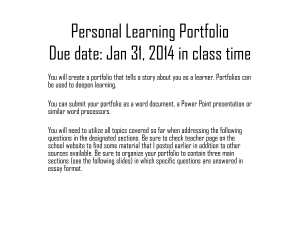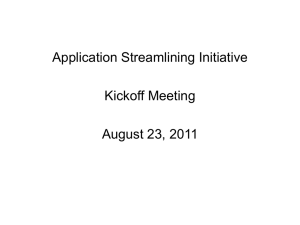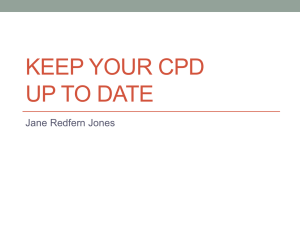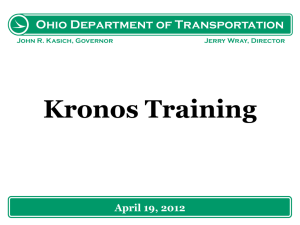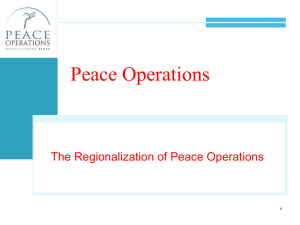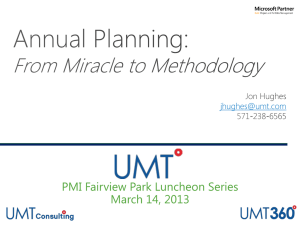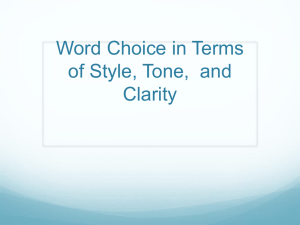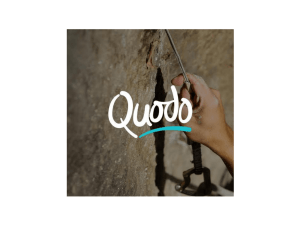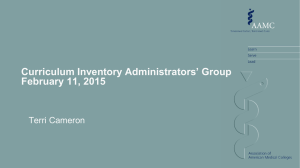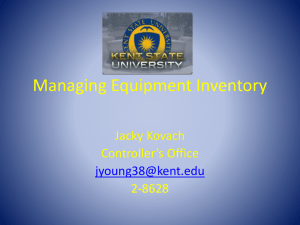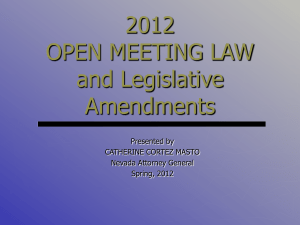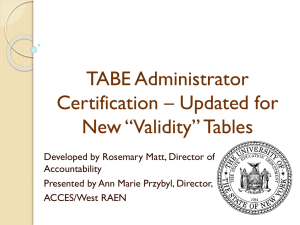PowerPoint Slides
advertisement
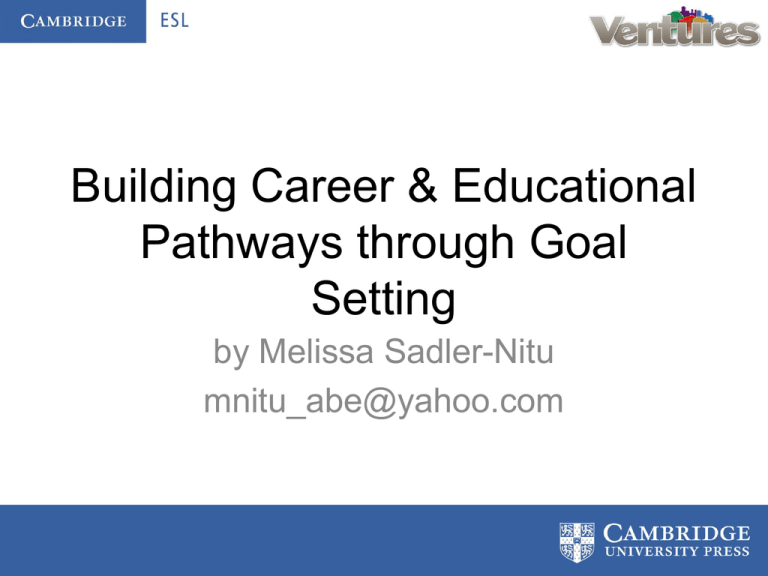
Building Career & Educational Pathways through Goal Setting by Melissa Sadler-Nitu mnitu_abe@yahoo.com Overview How do adult education programs promote academic and workplace pathways for all adult ESL learners? This webinar will look at how programs can tailor a solution that starts with clear student goals that are dynamic, obtainable and measureable. “Nobody can go back and start a new beginning, but anyone can start today and make a new ending.” Maria Robinson quotes New Accountability Leadership at both State and National levels are calling for another type of accountability for adult educators that includes partnering more with workforce and higher education. In addition, accountability will include measurement of student outcomes. In other words, have students set work goals and are they reaching them? Goal Setting for Learning & Persistence 1. Student Centered Approach 2. Dewey and Progressive Movement 3. 21st Century Skills 4. Transitions in Adult Education Student Centered Approach Dewey and Progressive Movement 21st Century Skills Transitions in Adult Education Professional Portfolios • Professional Portfolios are not typical classroom portfolios, they are exhibits of student work intended for job interviews, they include: – Resume’s – Personal Narratives – Job Observations – Career Inventories • Professional Portfolios are goal setting and transitional tools Begins on the first day of class and must continue throughout the curriculum SETTING GOALS FOR STUDENTS Career Inventory • Always begin with a career inventory even if a student cannot read • Using a career inventory is a means for looking at the students larger goal in life • Working backwards, it becomes easier to break the larger goal into smaller goals • Consider using Ventures Unit 8 when approaching this activity • Imagine that our imaginary student Maria would like to become a Registered Nurse Career Inventory NRS Level 1 • With the assumption that most students at this level cannot read or write in English it is appropriate to use a pictorial career inventory • You can make one using simple animations to demonstrate different types of work and have students circle what they like • Find visual career inventories online or from local workforces • Final product is placed in the student portfolio Career Inventory NRS Level 2 • Paper version of a career inventory • Inventory uses a combination of simple sentences and pictures • Final product is placed in the student portfolio Career Inventory NRS Level 3 • Blended version of a career inventory • Student uses a set of career inventory vocabulary learned in class • Simple career inventory on the computer requiring mainly vocabulary and clicking skills • Final product is placed in the student portfolio Career Inventory NRS Level 4 • Computer based inventory that requires students to have an email account • Students receive a full explanation of career interests based on responses to the inventory • Explanation of the career inventory should be printable for further analysis • Final product is placed in the student portfolio Career Inventory NRS Level 5 • Using the Career inventory (student may take a new inventory or use the previous inventory) Students begin to explore career pathways • Career pathways should be explored via the internet • Career pathways may also be explored through the counseling department at the community college • Final product is placed in the student portfolio Career Inventory NRS Level 6 • Using the results of a complex career inventory analysis (often found through workforce) students will put together results in polished format for their professional portfolio • Included in the portfolio, will be a printable career pathway that students have analyzed for long-term goal setting. Career Inventories • Students will not grow tired of completing career inventories since the subject is always themselves, thus student centered • By continually revisiting the concept of a career inventory the student has begun to set goals whether conscious or unconscious • Through teacher led discussions, each lesson offered in Ventures becomes a tie to the career goal The Autobiography • Professional portfolios work backwards with skills much in the same way that Ventures does with all chapter topics • Writing in the first person is a skill that is required for college readiness • Writing an autobiography is a student-centered approach to writing The Autobiography NRS Level 1 • With the assumption that most students at this level cannot read or write in English it is appropriate to have students use pictures to describe their lives orally • A complex example for students is The Arrival, by Shaun Tan • Students learn to describe their pictures of their lives to others • Final product is placed in the student portfolio The Autobiography NRS Level 2 • At this level students can begin to apply short written sentences to their pictures • Students should become comfortable presenting their autobiography to others in the class • Final product is placed in the student portfolio The Autobiography NRS Level 3 • Using the pictures and writing skills they have gained for this level, students will begin to write a paragraph (or more) about their lives • Written paragraph should be error free and in the first person, thus revisions and peer editing have occurred before the final product • Final product is placed in the student portfolio The Autobiography NRS Level 4 • Students will begin the basics of the computer for the purposes of writing a draft of their short autobiography • Students learn the basic formatting skills for writing essays • Students produce a typed version of their autobiography 1-2 paragraphs • Final product is placed in the student portfolio The Autobiography NRS Level 5 • Using MS Word, students produce a 3 paragraph autobiography • Written work is in 1st person and is error free in essay format • Work is saved onto a computer storage device • Final product is placed in the student portfolio The Autobiography NRS Level 6 • Using the previous work as a basis, student will produce a college ready autobiographical essay • Work is completed in MS Word, correctly formatted and error free • Work is saved onto a computer storage device • Final product is placed in the student portfolio Help students persist in your class HAVING TANGIBLE ITEMS FOR REFLECTION Secrets of the Professional Portfolio • Let students know that upon completion, the professional portfolio is something that they can take with them to a job interview • Collect copies of documents that help prove student success (i.e. certificates) • Consider only putting polished work that would impress an employer into the portfolio • Use 3 ring binders with plastic sheet protectors for everything that goes into the portfolio There are a variety of paths for ESL students that their instructors must begin to understand to help them make the right transition UNDERSTANDING TRANSITIONAL CHALLENGES FOR ESL STUDENTS Portfolio’s in the Classroom • Professional Portfolio’s are not intended to be the curriculum, they are intended to enhance existing curriculums such as Ventures. • Consider Professional Portfolio’s to be the thread that connects curriculum throughout the NRS levels Thank you for Attending QUESTION & ANSWER SESSION

